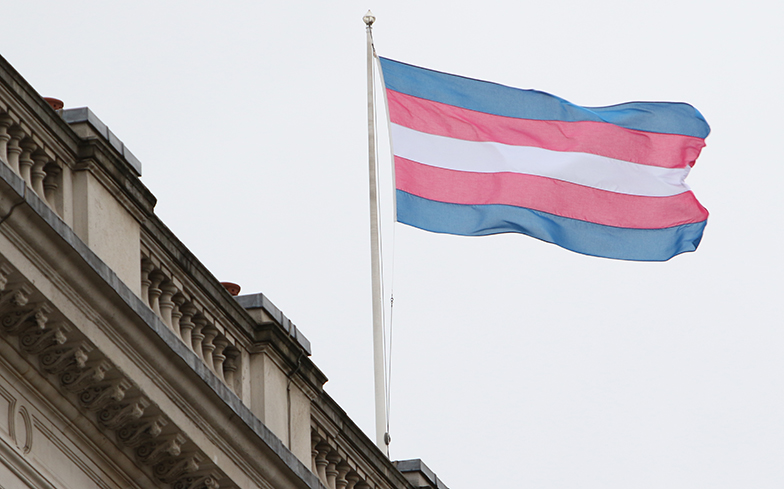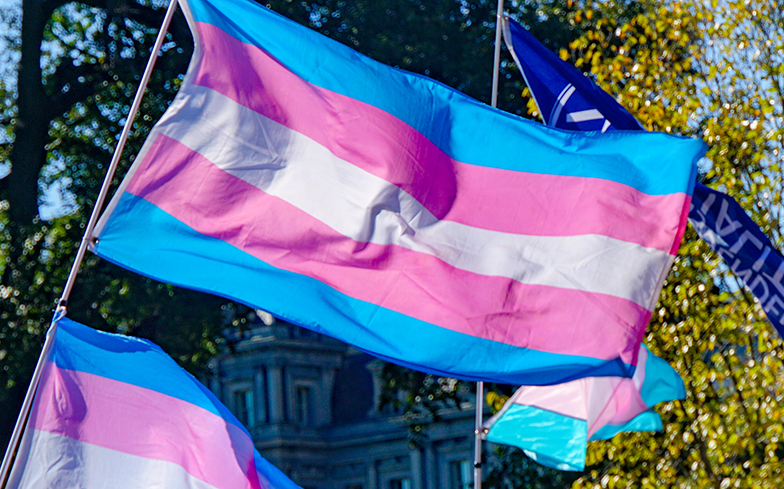
The UK Government’s proposed self-identification laws for trans and non-binary people have been scrapped.
In a major blow for trans rights, Liz Truss – Minister for Women and Equalities – has announced that the Gender Recognition Act will not be reformed, despite the Government’s own consultation on the matter finding overwhelming public support for allowing self-ID.
The Gender Recognition Act, which came into effect in 2005, enables trans people to receive a Gender Recognition Certificate, a document that shows an individual has passed medical criteria for legal recognition in the acquired gender.
In 2017, over 100,000 people campaigned for the Government to reform the act to allow trans people to change their legal gender without confirmation from medical professionals.
Following a three-year wait, Truss wrote in a statement on Tuesday: “We want transgender people to be free to live and to prosper in a modern Britain. We have looked carefully at the issues raised in the consultation, including potential changes to the Gender Recognition Act 2004.
“It is the Government’s view that the balance struck in this legislation is correct, in that there are proper checks and balances in the system and also support for people who want to change their legal sex.
“However, it is also clear that we need to improve the process and experience that transgender people have when applying for a gender recognition certificate, making it kinder and more straightforward. Our changes will address the main concerns that trans people themselves tell us they have about it.”
Truss also said that a reform on the act is “not the top priority for transgender people” and that the most important concern is the “state of trans healthcare”.
“Trans people tell us that waiting lists at NHS gender clinics are too long. I agree, and I am deeply concerned at the distress it can cause,” she said. “That is why we are opening at least three new gender clinics this year, which should see waiting lists cut by around 1,600 patients by 2022.
“The full benefit of the increases in clinical capacity that we’ve been able to secure will lead to greater patient choice, shorter waiting times, better geographical coverage and easier access. It will also make it easier to fulfil the medical requirements of obtaining a GRC. It is why we last year provided funding for the UK’s first national LGBT health adviser to help improve transgender people’s experience.”

Ted Eytan via Flickr
Nancy Kelley, Chief Executive at Stonewall, said the UK Government have “missed a key opportunity to progress LGBT equality.”
“It’s a shocking failure in leadership that after three years and a robust public consultation, the UK Government has put forward only minimal administrative changes to improve the process for legal gender recognition of trans people in England and Wales,” she said.
“While these moves will make the current process less costly and bureaucratic, they don’t go anywhere near far enough toward meaningfully reforming the Act to make it easier for all trans people to go about their daily life.
“All trans people deserve to be respected for who they are. Reforming the Act could have brought England and Wales in line with our neighbours in the Republic of Ireland, who have had a de-medicalised, self-determination system for gender recognition since 2015 without any problematic repercussions.
“The Government’s own response states that a strong majority of people who responded to the consultation supported these reforms. And just last week the British Medical Association called on the Government to allow trans people to be recognised for who they are without a medical diagnosis.
“So, we share the frustration and disappointment of trans people and allies who have campaigned and fought hard for GRA reform over the last few years.”
Kelley continued to say that Stonewall stands in solidarity with trans communities across the UK, “whose lives and identities have been made the subject of a relentless ‘debate’ ever since the Government announced its plans to reform the Act through a public consultation.”
“In the three years since, waiting times for Gender Identity Services have grown longer than ever, recorded anti-trans hate crimes have trebled, and anti-trans bullying remains endemic in our schools,” she added. “The UK’s stalled progress on trans equality is now one of the main reasons we continue to fall behind other European countries on LGBT equality in ILGA-Europe’s annual ranking.
“It is vital the UK Government tackles these issues head-on, and so the opening of at least three new Gender Identity Clinics this year is an important step towards reducing these waiting lists.
“Thank you to the thousands upon thousands of trans people and allies who took to the streets, wrote and called MPs, and shared your support online in hope of more progressive change. Stonewall will continue to call for acceptance without exception, and we won’t stop until every trans person, everywhere, is free to be themselves.”



